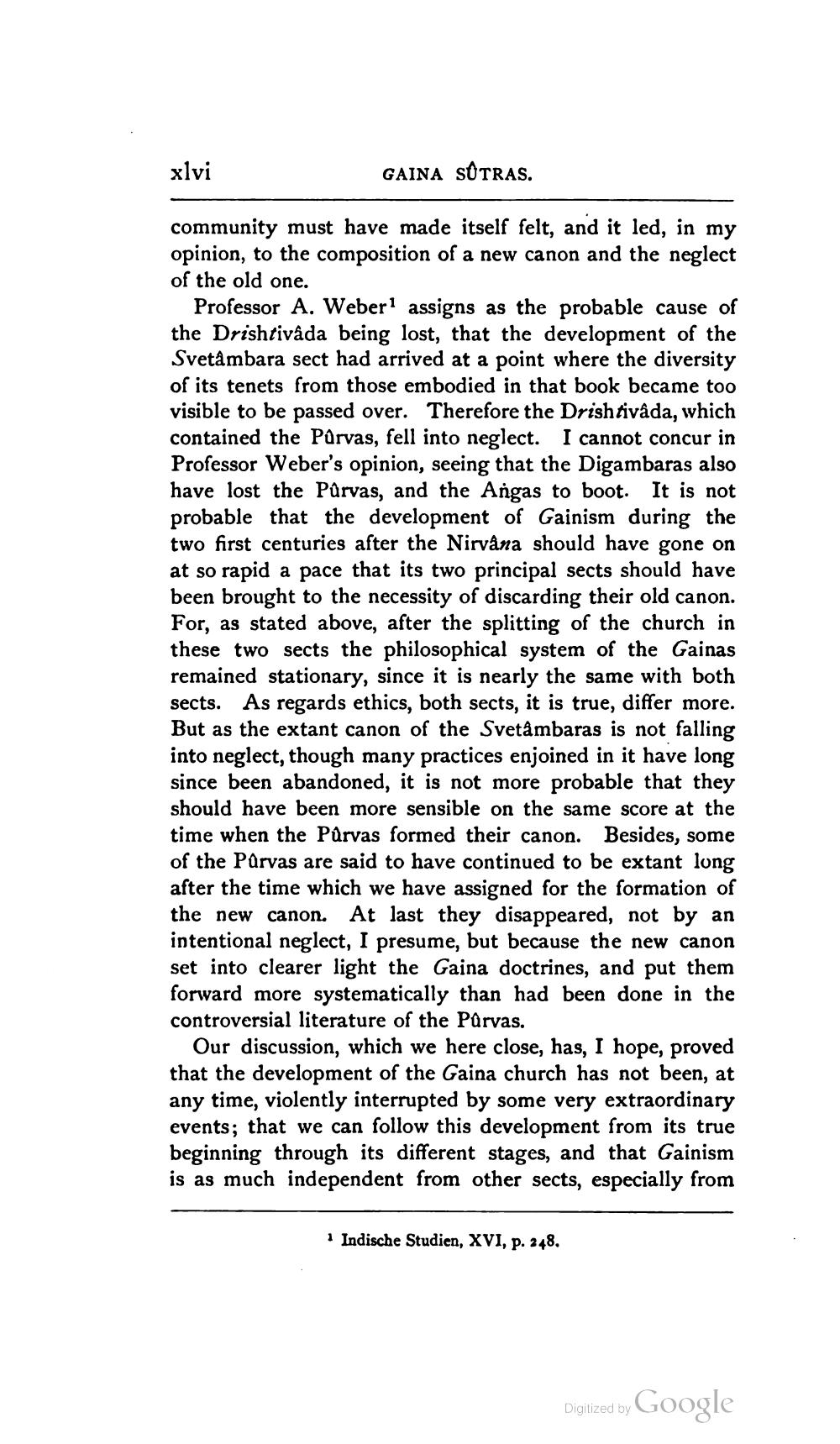________________
xlvi
GAINA SÚTRAS.
community must have made itself felt, and it led, in my opinion, to the composition of a new canon and the neglect of the old one.
Professor A. Weber assigns as the probable cause of the Drishtivada being lost, that the development of the Svetambara sect had arrived at a point where the diversity of its tenets from those embodied in that book became too visible to be passed over. Therefore the Drishtivada, which contained the Purvas, fell into neglect. I cannot concur in Professor Weber's opinion, seeing that the Digambaras also have lost the Purvas, and the Angas to boot. It is not probable that the development of Gainism during the two first centuries after the Nirvana should have gone on at so rapid a pace that its two principal sects should have been brought to the necessity of discarding their old canon. For, as stated above, after the splitting of the church in these two sects the philosophical system of the Gainas remained stationary, since it is nearly the same with both sects. As regards ethics, both sects, it is true, differ more. But as the extant canon of the Svetâmbaras is not falling into neglect, though many practices enjoined in it have long since been abandoned, it is not more probable that they should have been more sensible on the same score at the time when the Půrvas formed their canon. Besides, some of the Parvas are said to have continued to be extant long after the time which we have assigned for the formation of the new canon. At last they disappeared, not by an intentional neglect, I presume, but because the new canon set into clearer light the Gaina doctrines, and put them forward more systematically than had been done in the controversial literature of the Purvas.
Our discussion, which we here close, has, I hope, proved that the development of the Gaina church has not been, at any time, violently interrupted by some very extraordinary events; that we can follow this development from its true beginning through its different stages, and that Gainism is as much independent from other sects, especially from
1 Indische Studien, XVI, p. 248.
Digitized by Google




